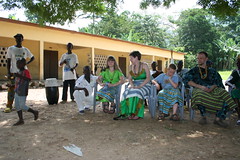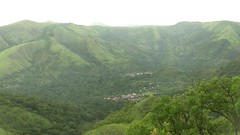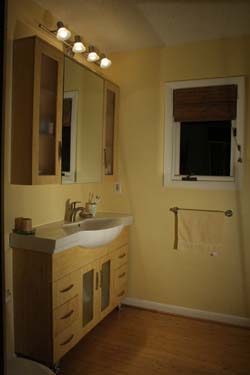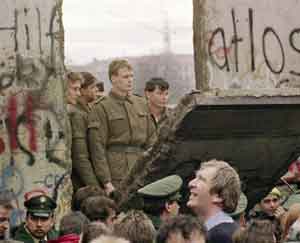Togo elections: a new generation emerges
March 1st, 2010On March 4, voters in Togo for the first time ever will have a choice between two young-ish leaders, as a new generation of politicians is slowly emerging from the shadows of the aging post-colonial crop of politicians. At least they are supposed to be able to choose. Considering that the election committee that oversees the contest is deeply enmeshed with the ruling party RPT, they can hardly be considered impartial. Nevertheless, this is an interesting and important election because it pits two interesting candidates against each other: President Faure Essozimna Gnassingbé and the main opposition candidate Jean-Pierre Fabre.
They both represent a new generation of politicians, albeit at different ends of the political spectrum. Faure Gnassingbe just took over the family business of ruling Togo after the death of his dad Gnassingbe Eyadema in 2005. Eyadema made a name for himself for staging Africa’s first post-colonial coup d’etat in 1963, and killing Togo’s first and only freely elected president Sylvanus Olympio. Eyadema ruled Togo with an iron fist for over 40 38 years. His rule included all the classic ingredients of African dictatorship: purges and prison-camps, tanks in the streets and death squads knocking down doors in the middle of the night. Under Faure’s management Togo has become much less repressive and some of the ethnic tension has abated. Still, last April (while we were visiting Togo) Faure had his brother Kpatcha arrested for treason. Kpatcha was charged with attempting to overthrow Faure and was locked away. Also the last election was pretty much a farce, and this time around, too, several candidates had their papers rejected on flimsy pretenses, probably because they were considered too popular. Yet – in comparison to his dad, Sorbonne educated Faure presents a new approach to dictatorship. An new, gentler dictator.
Fabre, 14 years older than Faure, is still downright youthful among the anciens combattants of Togo’s fragmented opposition, like 74-year-old Olympio, 80-year-old Emmanuel Bob-Akitani, 74-year-old Edem Kodjo, or 67-year-old Yawovi Agboyibo. No disrespect to these men. They have fought their battles valiantly, and, I’m sure, in the best interest of their country. But they also had to spend most of their lives in exile – thanks to Eyadema and his thugs. Fabre, however, returned to Togo after his studies in France, taught at the Universite du Benin in Lome, edited several newspapers, and was founding member of Olympios UFC in 1992. Since then, Fabre was one of the opposition’s main work horses, albeit in the shadow of Gilchrist Olympio, president of the UFC and son of Togo’s first president Sylvanus Olympio. Yes – the guy Faure Gnassingbe’s dad killed in 1963. And now that Olympio junior himself is too old and too ill to run, it is time for Fabre to step out of his shadow and run for president.
I think it is unlikely that the opposition will actually win. The reality is that a fractured opposition and a UFC fraught with internal disagreements is hardly in a position to wrest power from the deeply entrenched RPT and the “heir to the throne” Faure Gnassingbe who is backed by the military establishment. Yet, there is movement in the political landscape. A new generation is taking over and things will change. If Fabre can mobilize the voters and the international observers can prevent egregious fraud, then maybe a stronger showing of the opposition can wrest some concessions from Gnassingbe Junior. Maybe they can begin to loosen the grip of the Gnassingbe clan. And maybe, just maybe, Faure can eventually become the Gorbachev of Togo.
[Correction – Eyadema ruled Togo for 38 years, not “over 40.” After he killed Olympio, his associate Nicolas Grunitzky ran Togo from 1963 – 1967]




 On Saturday I spent 3 hours on the threshold and some smaller wood working stuff and now it’s finished!
On Saturday I spent 3 hours on the threshold and some smaller wood working stuff and now it’s finished!

